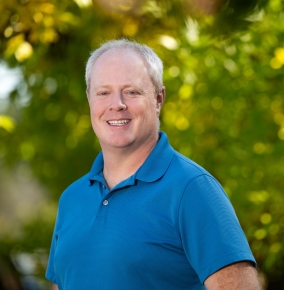David Whelihan

What does your job entail?
I do research and development on undersea systems, but my job really seems to extend to anything that touches the ocean — which is my favorite place to be. I work on building and programming undersea autonomous vehicles (robots), building acoustic communication systems, and supporting the scientific community by building and deploying sensor nodes in the Arctic. To do this, I have gotten to go to some pretty amazing places like Hawaii, Alaska, and the Arctic Ocean as well as the Bahamas where I spent two days living on a Virginia Class Fast Attack Submarine.
What project have you enjoyed working on the most?
That is a super tough question. I have worked in three divisions and have really enjoyed my time in each. I would say my favorite projects are those where I get to build something new, or help other people build cool things. One of the great things about my current group is that I also get to go to amazing places to deploy them!
Have you participated in any STEM outreach activities?
I did a Science on Saturday session on undersea robotics last year. I also helped out with the Beaver Works Summer Institute in 2021, the first year I was in this group. For that I built a small, low-cost autonomous underwater vehicle that I can bring to places along with a small pool. This year I served as a technical mentor for the Boston-area U.S. Naval Sea Cadet SeaPerch team, helping them to build small remotely operated vehicles that compete to run an underwater obstacle course.
Why did you decide to volunteer?
I really like working with kids. I think you gain a lot of perspective when you have to pull yourself out of your everyday context and have to explain things in simple, relatable ways. Jargon is a no-no, and so to explain things, you have to decompose ideas down to their elements. I think you really have to know your stuff to do that well. It is a great challenge.
Do you have any advice for someone seeking to work in your field?
I started out as a chip designer, then moved to cybersecurity, then undersea systems. The fact that I was able to do that is amazing. Understanding this field has not been easy, and I think after almost three years in it, I am only now starting to know what I don’t know — which is a lot. So my advice is to be patient with yourself, and take as many opportunities to learn as you can.